Although everybody’s sleep schedule is different, sleep deprivation (aka insomnia) is a rising issue in the U.S among the most common sleeping disorders. Statistically speaking, around a quarter of all the American population has experienced difficulty sleeping. Meanwhile, ¾ of that number is the people who have managed to overcome the problem while the rest are still struggling.
Identifying the condition and gearing up to resolve it is, of course, the key to learning how to find relief for the sleep-deprived (find out more at sleepingmola.com). On the other hand, it’s important to realize that delaying and ignoring it may be more dangerous than it seems at first.
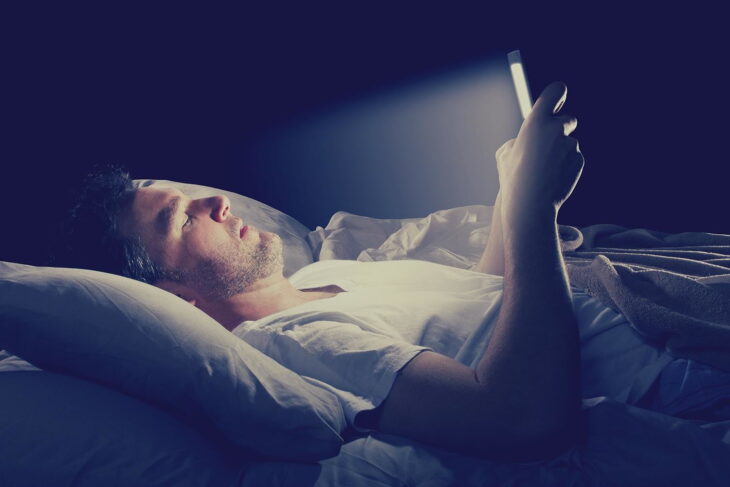
Source: digitaltrends
Contents
What’s Sleeplessness?
Sleeplessness, or more commonly insomnia, designates a complex of sleep-related problems that result in a person’s inability to initiate or maintain quality sleep. While the reasons for the phenomena vary, different people normally experience the same set of symptoms:
- Restlessness at night;
- Increased heartbeat;
- Overall tiredness;
- Irregular sleeping routine;
- Difficulty focusing and learning;
- Irritability
All of the symptoms or some of them may manifest differently and occur sporadically. However, if the condition remains unchanged for an extended period of time, some clinical psychologists recommend identifying it as a disorder.
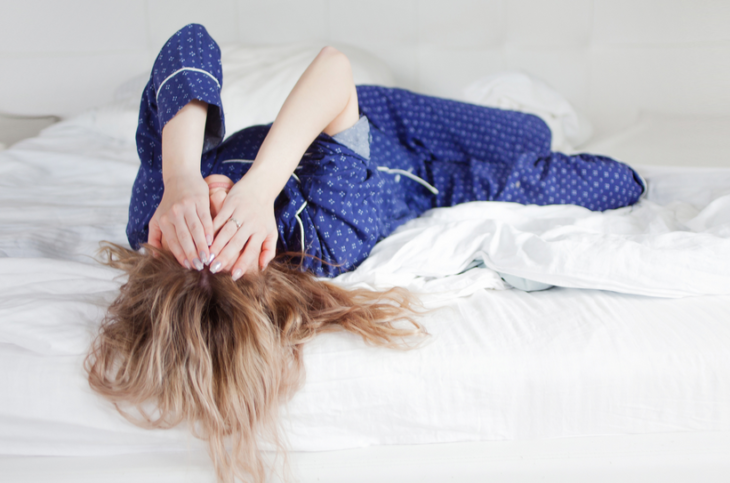
Source: Sleepify
The acute sleep-deprivation disorder can last from three days to weeks, or sometimes even months, where the sufferers aren’t able to maintain their sleep sessions without waking up. Insufficient sleep sessions can cause a number of other, more serious disorders or illnesses, like:
- Obesity;
- Heart disease;
- Depression, etc.
Although such cases are rare, there is still a good chance of developing an underlying condition that can last even after successful insomnia treatment. To have a clear understanding of a person’s current health status, medical specialists categorize each case depending on the severity:
- Primary sleeplessness is caused by reasons unrelated to the person’s health condition and is normally treated through mild medication and exercises.
- Secondary sleeplessness is a result of one or a couple of health issues that require prompt medical intervention.
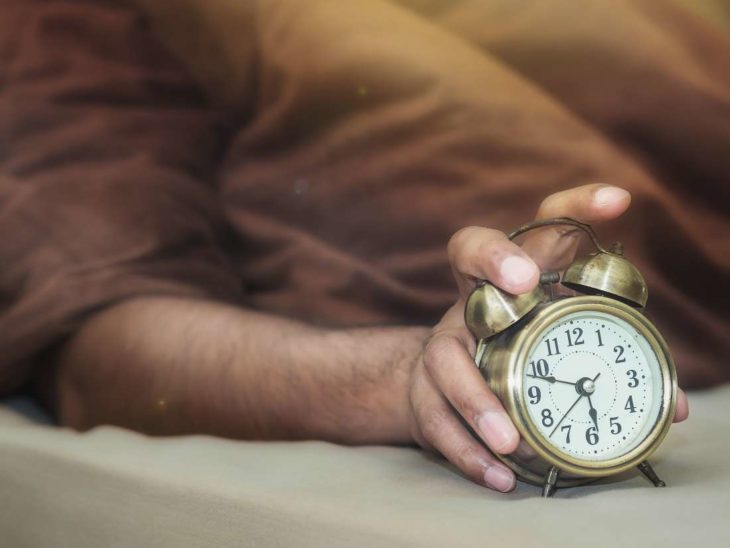
Source: medicalnewstoday.com
Causes of Sleeplessness
When it comes to the essence of insomnia, primary and secondary categories give us a thorough understanding of the problem. While secondary sleeplessness causes are clear, the primary ones can vary and be followed by changes in one’s daily routine. It’s deduced that sleep deprivation can be related to:
- Time zone change or daily schedule irregularities. Apparently, our bodies are used to a specific set of biorhythms designated by the place where we live. For instance, if you live in New York and you are on a business trip in LA, your body might be a little puzzled since the time difference between the places is two hours. This way, your brain will start readjusting to the new circumstances, trying to fill up that two-hour gap.
- Stress. Heightened brain activity is proven to be in the top three of sleep-deprivation causes. According to the statistics, more than 40% of people between the ages of 14 and 65 have reported difficulty regulating their sleep schedules due to stressful experiences.
- Substance abuse. Artificial supplements, like alcohol, nicotine, caffeine, and drugs, inflict a similar effect on our brain. Unable to relax, the neurons force impulses all over the system, keeping the muscles tense and the body restless. Though the effects are temporary, the substances are known to be activated the most before sleep when metabolism mechanisms kick in.
- In-room conditions. Basic comforts like linen, pillows, and even room temperature can also be disruptive. For instance, seasonal and chronic allergies can start acting out if the bedding consists of allergen-containing fibers.
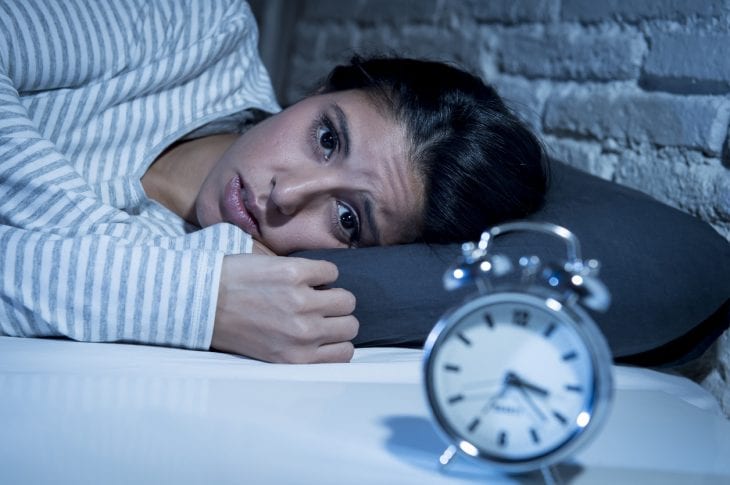
Source: ve.emedemujer
Diagnosis and Treatment
Naturally, not every sleepless night is a sign of insomnia. Sometimes, the external conditions and mental state can play a wicked game with our daily routine. However, if the problem doesn’t seem resolved within a short period of time, it can be a signal for psychologists to diagnose the sleep-deprivation syndrome. As it goes, the following symptoms should manifest:
- Continuous restlessness at night;
- Decreased motivation and zeal;
- Decelerated learning and cognitive abilities;
- Ongoing irritability;
- Occasional blackouts;
- Anxiety and depression
To treat the condition, medical specialists apply a variety of techniques and drugs. Normally, a physician or psychologist will prescribe medicine to facilitate sleeping, like sleeping pills. However, this approach is more aimed at treating the symptoms rather than the problem itself. It gives short-time relief to restore a person’s ability to have a good 7-9-hour sleep, but it doesn’t guarantee a long-term solution.
Diagnosed insomnia requires a radical approach to a person’s lifestyle and routine. For instance, you may be recommended, including regular exercise and a healthy diet. The exercise will boost your body’s tiredness, whereas the diet is meant to supply your body with necessary supplements that increase your brain activity during the day to ease sleeping at night.

Source: Shutterstock
Prevention
If you have experienced sleeplessness before, you are most likely to be inflicted by it in the future. There are quite a few things that can be done to decrease insomnia chances. You can:
- Regulate your awake/asleep cycle by setting robust frames for your sleep/wake-up times.
- Add physical activity to your schedule. Even running or doing yoga will increase your overall body tiredness and force your brain to fall asleep more easily.
- Reduce caffeine and substance consumption or avoid it completely.
- Avoid large meals before bed, as well as drinking milk and smoking.
- Keep away from using the smartphone before bedtime but read a book.
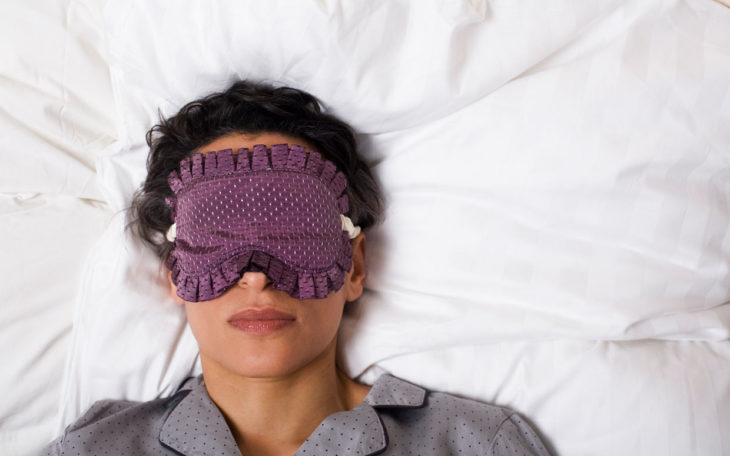
Source: parade.com
Sleeplessness Is Not a Sentence
Both our body and mind need sufficient rest to operate the way they are meant to. While there is a myriad of things that can disrupt this balance, restoring it is much more complicated. The difficulty here is not to slip into a condition that is otherwise untreatable.
If you have detected sleep-deprivation symptoms over an extended period of time, you, of course, should consult with your physician. However, there are things that can help you avoid running the risk of the disorder, and practicing them won’t do any harm in the long run. Remember to take care of yourself and give your body and mind the rest they deserve.
